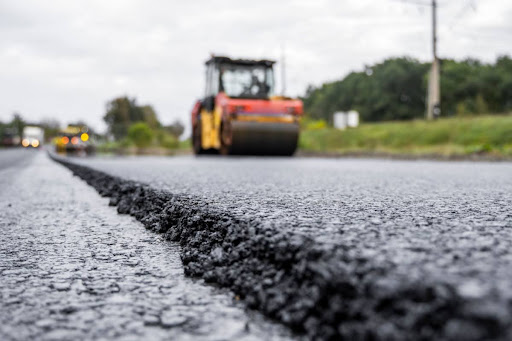- Unmasking Alligator Cracking: The Hidden Enemy of Asphalt Pavement
- Are Asphalt and Sealcoating Environmentally Friendly?
- Should I Repair My Potholes in Spring?
- 5 Important Questions You Should Ask Your Seal Coating Company
- How Does Snow Cause Potholes on Asphalt Roads?
- How Can Driveway Paving Add Value to Your Home?
- How Does Sealcoating Protect Driveways From Damage?
Are Asphalt and Sealcoating Environmentally Friendly?

Are you looking to make your home a green haven AND do your part in helping the environment? Believe it or not, a great place to start is by paving a driveway with asphalt and protecting it with a solid sealcoating. This eco-friendly method of pavement maintenance can help keep the vibrancy of your driveway while simultaneously reducing the environmental impact of similar products. With asphalt and sealcoating, you can combine these essential driveway utensils to create an environmentally conscious property, and the experts at Superior Sealcoating will show you how.
Less Vehicular Pollution
One of the major causes of environmental trouble is vehicular pollution. But asphalt sealcoating actually helps to avoid some of these effects. When gas and oils leak onto the asphalt, it can hasten the effects of worn-down asphalt pavement. Constantly getting repairs or re-paving your property leads to more machinery use and asphalt consumption, causing increased environmental pollution that other home or business owners won’t be able to avoid.
Protect Natural Materials Involved in the Creation of Asphalt
Asphalt is made using natural materials like gravel, clay, and sand. So minimizing asphalt damage can help to avoid the frequent use of these natural minerals. In addition, when you sealcoat your asphalt pavement, you reduce the likelihood of damage and wear and tear, leading to fewer repairs and lengthening the lifespan of your driveway or pavement. Over time, these seemingly minor differences can significantly improve the quantity of various natural resources.
Sealers Are Environmentally Friendly as Well
Not only can the sealcoating process bring environmental benefits, but the sealers used in the sealcoating process offer a ton of environmental advantages as well. Typical contractor-grade driveway or parking lot sealers are formulated using recycled fillers and are durable, non-burning, odorless, and fast drying. This means you’ll have a safe-to-use product applied in various locations that also offer solid and resistant properties to some of the more damaging elements driveways and parking lots encounter.
Simply Using Asphalt Can Provide Tons of Environmentally Friendly Benefits
Asphalt is one of the more commonly used pavement materials and also holds the mark of being one of the more environmentally friendly pavement materials. So using asphalt and getting a sealcoating can provide double the benefits for your surrounding environment. While it may be a petroleum-based product, the industry has made many advancements in material development, making an asphalt paving job one that can help reduce the amount of harmful waste you espouse.
Asphalt Can Be Recycled
Asphalt is often recycled and used in the creation of new materials. So the asphalt used on your driveway can be converted into shingles for homes and other essential construction materials. Recycled asphalt is often better than newly created asphalt, as recycling involves adding mineral fillers and organic fibers. This makes the recycled material less likely to crack and suffer the fate of the original asphalt.
Asphalt Can Also Be Reused
The base layers of your asphalt driveway can also stay in place during paving or repair. This means you won’t have to worry about completely replacing the existing asphalt and enduring the cost of a new pavement structure. Regular maintenance also helps, as you will only be required to change out the damaged asphalt without worrying about a compromised foundation.
Asphalt vs. Concrete
Concrete — the main competitor to asphalt surfaces — comes with a few advantages of its own, but does it stand above asphalt? Let’s compare a few environmental aspects of asphalt and concrete:
- While concrete provides benefits with its ability to reflect more sunlight into the air, much of that reflected sunlight can also hit nearby buildings. This can take a tremendous toll on properties — especially on the hottest days — and lead to higher energy usage due to increased HVAC consumption.
- Speaking of energy, asphalt takes considerably less energy to create than concrete. Concrete is formed via extremely high temperatures, creating more emissions than standard asphalt production. In fact, the asphalt industry has helped lower emissions by around 97 percent over a 19-year period starting in 1970.
- Asphalt also takes MUCH less time to lay down, meaning less time inconveniencing employees and homeowners.
Protect Your Driveway and the Environment With Superior Sealcoating
Asphalt provides a ton of benefits, and so does sealcoating your asphalt. This means plenty of ways to make life easier by navigating your property without damaging the environment along the way — a win-win for both sides. So when it's time to protect your driveway and property from harm's way, trust in the experts at Superior Sealcoating. We provide commercial and residential driveway sealcoating in Southeastern, PA, designed to ensure driveways, parking lots, and other asphalt surfaces stay protected from the elements. With premium workmanship and a commitment to quality, you’ll benefit the environment while enjoying smooth pavement for years to come. Contact us today to schedule your sealcoating or asphalt paving service!